Wheat Cycle (1975)
Género : Documental
Tiempo de ejecución : 16M
Director : David Hancock, Herbert Di Gioia
Sinopsis
The people and their labor are bound to the land in the cycle of activities to the sowing to the harvesting of wheat. Without narration or subtitles, the film conveys a sense of unity between the people and the land. Filmed in the Balkh Province, an area inhabited by Tajik and other Central Asian peoples. The town of Aq Kupruk is approximately 320 miles northwest of Kabul. The theme of the film focuses on rural economics. The film and accompaning instructor notes focus on herding, and fishing under diverse environmental conditions. The impact of technological change, human adaptation, and governmental extension of market systems are parallel themes.
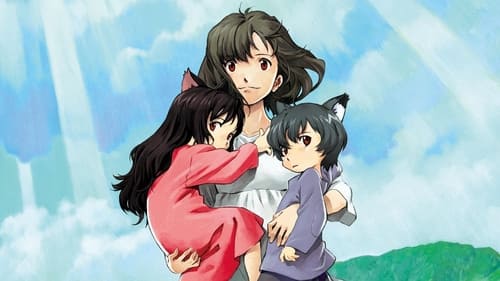
Cuando era poco más que una adolescente, Hana se enamoró de un Hombre Lobo. Puede parecer extraño, pero durante trece años fueron inmensamente felices, y tuvieron dos hijos: Yuki y Ame, que nacieron también con la capacidad de convertirse en lobos. Tras la repentina muerte de su esposo, Hana decide mudarse al campo para así criar a sus hijos en un entorno tranquilo, donde sus extraordinarias facultades no sean descubiertas. Sin embargo, al crecer, Yuki y Ame deberán decidir si quieren vivir como humanos o como lobos. Un hermoso cuento salido de la imaginación de Mamoru Hosoda, que ya nos maravilló con The Girl Who Leapt Through Time y Summer Wars.

Un auditor es enviado a un banco en el norte de Nueva York y descubre un flujo de dinero sospechoso de una galería que vende pinturas de un millón de dólares. El agente se verá envuelto en una conspiración en la que los agentes del FBI, la mafia rusa y el blanqueo de dinero son los protagonistas absolutos.

Expertos científicos y celebridades activistas revelan las formas en que el suelo terrestre puede ser la clave para combatir el cambio climático y preservar el planeta.

Kathy, una niña de quince años que vive en una granja de Lancashire, al norte de Inglaterra, encuentra a un fugitivo acusado de asesinato escondido en el pajar. Cuando le pregunta su nombre, el hombre, antes de desmayarse, sólo acierta a decir “Jesucristo”. Kathy, convencida de que es realmente Cristo, se lo cuenta a su hermano pequeño y a sus amigos, y entre todos deciden cuidarlo y evitar que los vecinos lo capturen.

Al exponer la parte más oscura de la agricultura animal moderna a través de drones, cámaras ocultas y de mano, el largometraje explora la moralidad y la validez de nuestro dominio sobre el reino animal.
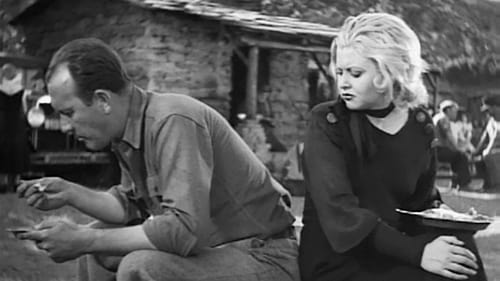
Estados Unidos, años 30. En plena Depresión económica, John y Mary, una pareja joven que vive abrumada por las deudas y el desempleo, abandona la ciudad y se establece en una granja abandonada. A pesar de la inexperiencia de John, deciden explotarla. Y este proyecto se hará realidad a medida que vayan llegando a la finca personas de los más diversos oficios que huyen de la miseria urbana. El resultado es la creación de una cooperativa agrícola y de un nuevo tipo de sociedad más solidaria. (FILMAFFINITY)

A group of people setting out to find a previously assumed land and upon reaching it, not knowing how to deal with the customs of the place, have to deal with all the consequences.
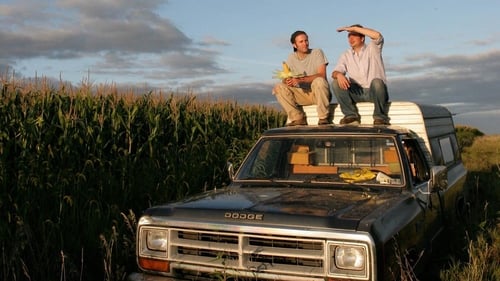
King Corn is a fun and crusading journey into the digestive tract of our fast food nation where one ultra-industrial, pesticide-laden, heavily-subsidized commodity dominates the food pyramid from top to bottom – corn. Fueled by curiosity and a dash of naiveté, two college buddies return to their ancestral home of Greene, Iowa to figure out how a modest kernel conquered America. With the help of some real farmers, oodles of fertilizer and government aide, and some genetically modified seeds, the friends manage to grow one acre of corn. Along the way, they unlock the hilarious absurdities and scary but hidden truths about America’s modern food system in this engrossing and eye-opening documentary.
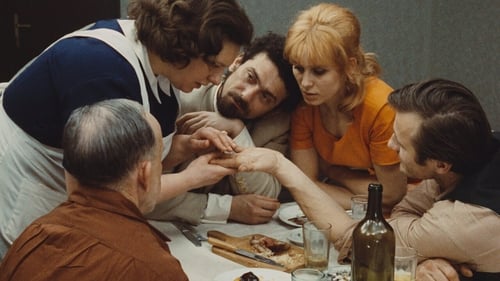
El título "Todos mis buenos compatriotas" no está exento de ironía, ya que esta historia épica de la vida de un pueblo checo, poco después del final de la Segunda Guerra Mundial, se concentra en las actividades de un grupo de amigos a los que no se les puede reprochar ponerse del lado de un político corrupto régimen para el avance material. ¿Son estos los "buenos compatriotas" del título o se refiere al resto de la aldea que desprecian a esta pequeña figura de autoridad con desprecio silencioso?

A strange story from Somerset, England about a filmmaking farmer and the inspiring legacy of his long-lost home movies.

Milk is Big Business. Behind the innocent appearances of the white stuff lies a multi-billion euro industry, which perhaps isn't so innocent…
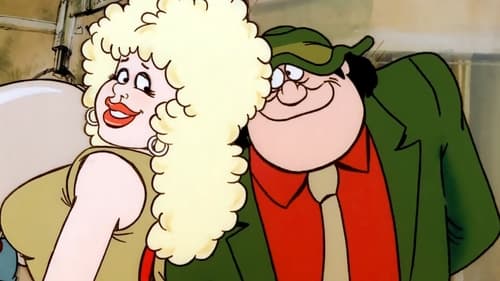
Featuring the characters from Murray Ball's "Footrot Flats", (New Zealands most beloved local cartoon strip ). Questions to be answered include: Will Wal Footrot win the affections of Cheeky Hobson over the sleazy Spit Murphy? Will the Dog win the affections of the lovely Jess? Will Wal make a good impression on the All Black selectors at Saturdays rugby match? Can Rangi and Pongo save Cooch's prize stag from the depths of Blackwater station, home of the Murphy's, their vicious dogs and deadly croco-pigs? All this and more will be answered as the small town of Raupo comes to life on the big screen.

Modern British dairy farms must get bigger and bigger or go under but Farmer Stephen Hook decides to buck the trend. Instead he chooses to have a great relationship with his small herd of cows and ignore the big supermarkets and dairies. The result is a laugh-out-loud emotional roller-coaster of a film, a heart warming tearjerker about the incredible bonds between man, animal and countryside in a fast disappearing England.
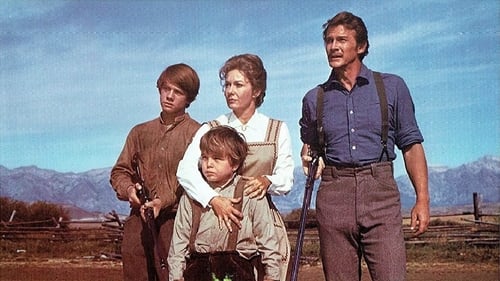
Una familia abandona la vida urbanita para entrar en posesión de un rancho en Wyoming.
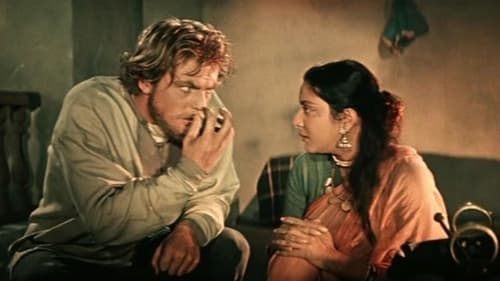
This first co-production of the Soviet and Indian cinematographers is dedicated to the Tver merchant Afanasy Nikitin who in 1466-1472 blazed the trade way from Europe to India. The film is based on Nikitin’s travel notes. Starring in the film are popular Russian actor Oleg Strizhenov and India’s 1950s movie star Nargis.

For ancient Mayans, cocoa was as good as gold. For subsistence farmer Eladio Pop, his cocoa crops are the only riches he has to support his wife and 15 children. As he wields his machete with ease, slicing a path to his cocoa trees, the small jungle plot he cultivates in southern Belize remains pristine and wild. His dreams for his children to inherit the land and the traditions of their Mayan ancestors present a familiar challenge. The kids feel their father's philosophies don't fit into a global economy, so they're charting their own course. Rohan Fernando's direction tenderly displays a generational shift, causalities of progress in modern times and a man valiantly protecting an endangered culture. Breathtaking vistas of lush rainforests contrast with the urban dystopia that pulled Pops children away from him. Will one child return to carry on a waning way of life
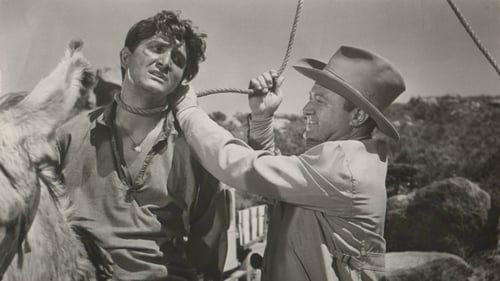
Manuel es un pobre, pero orgulloso granjero mexicano que está casado con María. Cuando el lenguaraz vagabundo Santiago le propone que participe en el robo de un tren, Manuel al principio se resiste, pero acaba aceptando la propuesta por culpa de la codicia de su mujer. Corrompido por el afán de riqueza, Manuel empieza a tramar el asesinato de Santiago. Al mismo tiempo María hace planes para deshacerse de Manuel y escaparse con un apuesto extranjero.

A young woman in traditional Japanese attire fixes her hair and kimono while her servants assist her.

A look at man's relationship with Dirt. Dirt has given us food, shelter, fuel, medicine, ceramics, flowers, cosmetics and color --everything needed for our survival. For most of the last ten thousand years we humans understood our intimate bond with dirt and the rest of nature. We took care of the soils that took care of us. But, over time, we lost that connection. We turned dirt into something "dirty." In doing so, we transform the skin of the earth into a hellish and dangerous landscape for all life on earth. A millennial shift in consciousness about the environment offers a beacon of hope - and practical solutions.

Remember the culture clash in THE GODS MUST BE CRAZY? This time it's real. One of the most ancient cultures on our planet is undergoing a major change. The Ju/Hoansi Bushmen in Namibia are not allowed to hunt anymore and need to converge with our so called “civilized” lifestyle. For the first time the Ju/Hoansi Bushmen travel through the Kalahari and then right into the heart of Europe. What starts as a look at their fascinating culture becomes an even more fascinating look at our Western lifestyle. A warm and humorous reflection of our habits through the eyes of people who are about to give up their million year old traditions.


















